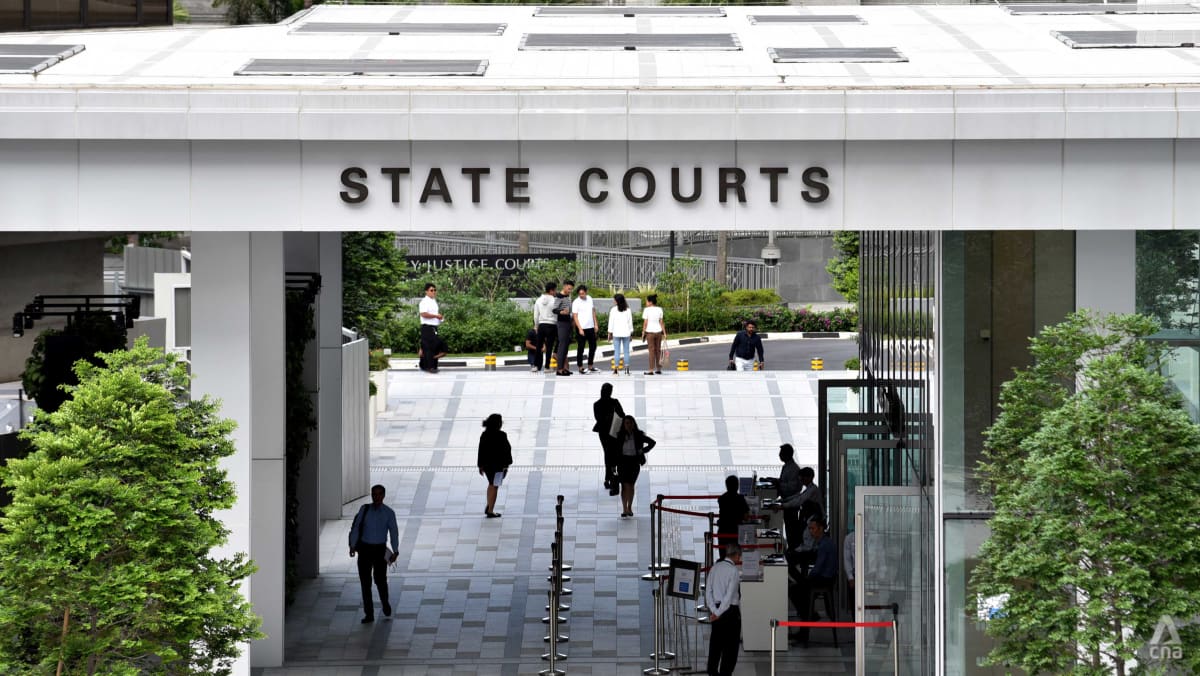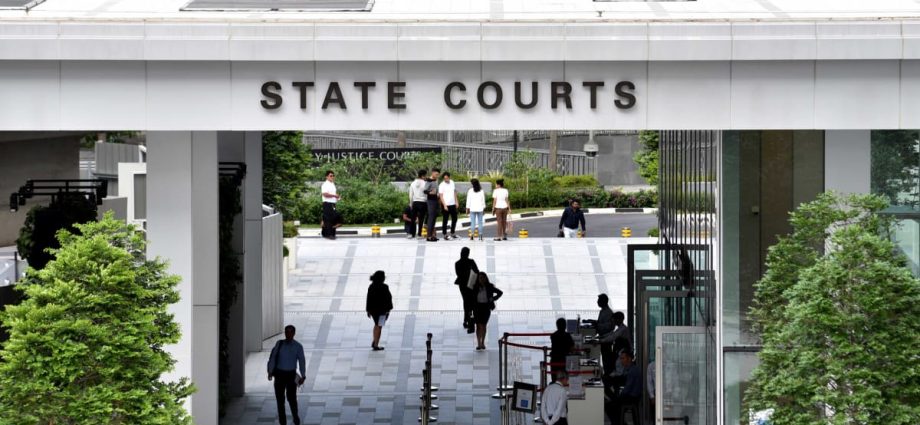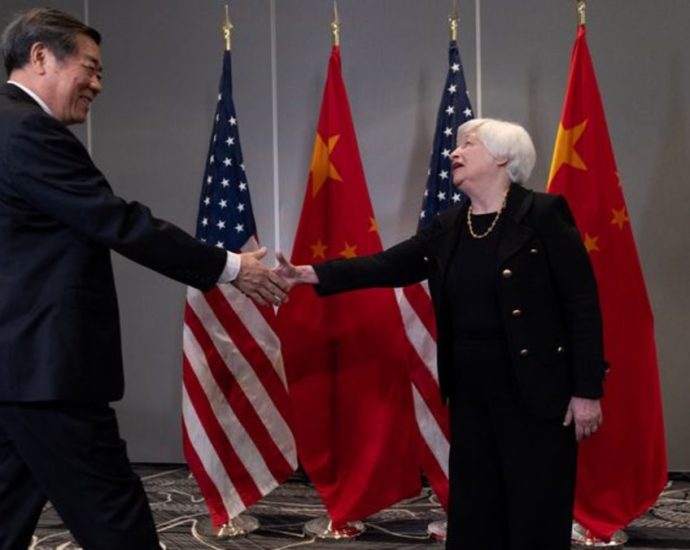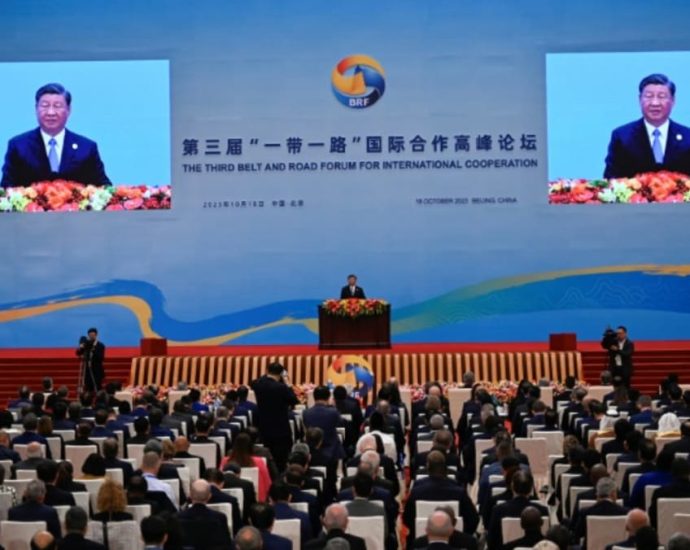Singaporean ‘Ah Long’ who ran illegal loan shark business from China and Malaysia gets jail and fine

SINGAPORE: A gambler who was roped into an illegal moneylending syndicate as a runner rose through the ranks over more than a decade and became an “Ah Long” or loan shark operating from foreign countries, targeting Singaporean borrowers.
He operated from Kuala Lumpur, before shifting to China where he remained for 12 years, collecting a total of SS$756,000 (US$555,800) in salary before factoring in his cut of the profits.
Eventually, he suffered a stroke in China and returned to Singapore in 2022 to turn himself in because of his failing health.
Alan Sia Peng Xing, a 56-year-old Singaporean, was sentenced to six-and-a-half years’ jail and a fine of S$700,000 on Friday (Nov 10).
If he cannot pay the fine, he will have to serve another 20 months’ jail.
He pleaded guilty to 20 charges under the Moneylenders Act, with another 39 charges taken into consideration.
SIA’S STORY
The court heard that Sia was in debt in mid-2006 due to gambling. He had taken loans of about S$5,000 from a loan shark known as Ah Heng or “Towkay”.
Ah Heng, whose real identity is Ang Wee Siong, is the sponsor and head of the moneylending syndicate that is based overseas.
In early 2007, Sia was unable to pay his loans and accepted a job to work as a runner for the syndicate for S$1,000 a month.
Sia first started working for the syndicate from early 2007 or 2008, harassing debtors at their flats, collecting payments and depositing cash.
He went by the name “Ah K” and was “promoted” to become a loan shark himself, operating from Kuala Lumpur in mid to late 2008.
Ah Heng arranged for Sia to take over the stall in Malaysia, with a pool of 50 debtors in Singapore. He was given a runner to assist him with errands in Singapore and he was paid S$3,000 a month, with a profit sharing of 30 per cent from the stall.
He was placed on a year’s probation, with 10 per cent of his profit sharing given to his mentor, a senior loan shark known as Johnny, who is Sia’s co-accused.
Sia operated his illegal moneylending stall from a condominium in Kuala Lumpur under Johnny’s watch, issuing loans ranging from S$500 to S$2,000 to his debtors in Singapore.
The loans came with interest rates of 20 per cent, repayable over daily, weekly or monthly instalments.
In mid-2009, Sia completed his probation and began operating his stall independently and reporting directly to Ah Heng. He received a 30 per cent profit sharing from Ah Heng after finishing his probation period.
In mid-2010, Ah Heng directed Sia to shift his base of operations from Malaysia to China.
Sia complied and stayed in China for about 12 years, regularly travelling to different regions and cities to operate his illegal moneylending business.
While in China, Sia communicated with his pool of Singapore debtors using Singapore and China mobile lines, maintaining his own records and informing Ah Heng if he faced difficulty in collecting repayments.
Investigations showed that Sia’s salaries and profit sharing increased several times during this period.
He was paid a monthly salary of S$6,000 in 2014, with a profit sharing of 30 per cent from his stall.
This percentage was increased to 40 per cent in mid-2016.
Based on the salary calculation alone, Sia collected a total of S$756,000, excluding the profit-sharing arrangements, while working for the syndicate, the prosecution said.
In mid-2016, Sia’s health deteriorated after he suffered a minor stroke in China. Because of his failing health, he decided to return to Singapore and surrender.
SURRENDER
He arrived at Changi Airport on Dec 1, 2022, and was placed under arrest after a police gazette was found to be put up against him.
Several of Sia’s co-accused, who were fellow unlicensed moneylenders from the same syndicate, have already been arrested and sentenced to jail terms, including caning.
The prosecution sought seven years’ jail and a fine of S$800,000 for Sia, to disgorge the sum of S$756,000 earned by Sia in his illegal line of work.
Sia had carried on his business for 12 years in China, first receiving training from a “senior” in Malaysia before operating a stall on his own in China, said the prosecutor.
Ah Heng is currently on the run.




















